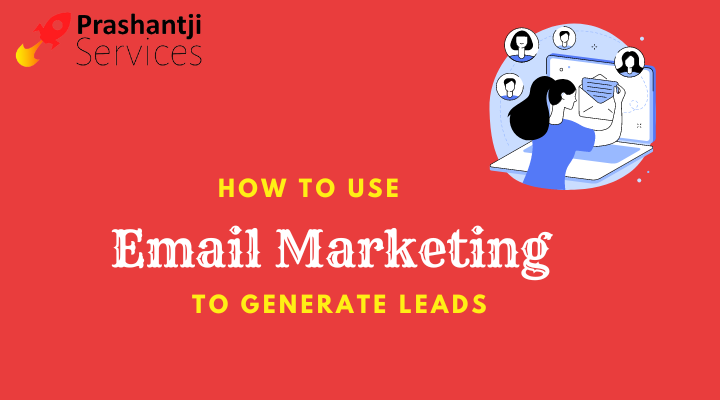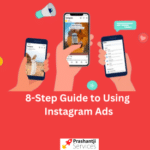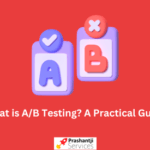Are you struggling to generate leads for your business? Are you tired of spending countless hours and resources on traditional marketing methods with little success? If so, it’s time to consider email marketing as a key component of your lead generation strategy. With the ability to reach a large audience at a low cost and the power to personalize messages based on customer behavior, email marketing is quickly becoming one of the most effective ways to attract and convert potential customers. In this blog post, we’ll explore why email marketing should be an essential part of your lead generation strategy and how you can use it to drive growth for your business. So grab a cup of coffee and let’s dive in!
What is Email Marketing?
Email marketing is a form of direct marketing that uses electronic mail as a means of communicating commercial or fundraising messages to an audience. In its broadest sense, every email sent to a potential or current customer could be considered email marketing. However, the term is usually used to refer to:
(1) Sending emails with the primary purpose of enhancing the relationship of a merchant with its current or previous customers,
(2) Sending emails with the primary purpose of acquiring new customers or convincing current customers to purchase something immediately, and
(3) Adding advertisements to emails sent by other companies to their customers.
Email marketing campaigns typically have better open rates than mass-market advertising mailings, meaning more people are exposed to your message. Additionally, email marketing enables you to track who opens your messages and who clicks on any links within the body of your email which gives you valuable feedback about what interests your subscribers. You can then use this information to tailor future campaigns more effectively.

Benefits of Email Marketing
Email marketing is one of the most effective lead generation strategies because it allows businesses to target leads with highly personalized messages. When done correctly, email marketing can result in increased leads, higher conversion rates, and more sales. Here are some of the benefits of email marketing:
- Increased reach: With email marketing, businesses can reach a larger audience than with other marketing techniques. This is because nearly everyone has an email address.
- Cost-effective: Email marketing is one of the most cost-effective lead generation strategies. It is much cheaper to send an email than it is to run a television or print ad campaign.
- Personalized messages: Emailmarketing allows businesses to send highly personalized messages to their leads. This personalization can increase conversion rates and results in more sales.
- Timely delivery: Emailmarketing allows businesses to send messages quickly and easily. This timely delivery can be important when trying to generate leads who are interested in time-sensitive offers.
- Increased ROI: When done correctly, email marketing can have a high return on investment (ROI). This means that businesses make more money from their email campaigns than they spend on them.
How to Set Up an Effective Email Marketing Strategy
Assuming you have a product or service to sell, email marketing can be an extremely effective way to generate leads and close sales. But, like any good marketing strategy, there is a right way and a wrong way to go about it. The key to success is understanding your audience and crafting content that resonates with them.
To get started, you’ll need to build a list of email subscribers. You can do this by adding an opt-in form to your website or blog, or by running a lead generation campaign on social media or through paid advertising. Once you have a list of subscribers, it’s time to start creating content. Your email marketing content should be educational and informative, providing value to your subscribers while also promoting your product or service. It’s important to strike the right balance so that your emails are not perceived as spam. In addition, your emails should be well-designed and mobile-friendly, as more and more people are reading their email on their smartphones.
You’ll need to track your results so that you can continually optimize your strategy. Keep an eye on open and click-through rates, as well as unsubscribe rates. If you see that people are not engaging with your emails, make changes accordingly. With a little trial and error, you can develop an email marketing strategy that works for your business and helps you close more sales.

Writing Effective Emails for Lead Generation
Email is still one of the most effective lead generation tools available, despite the rise of social media and other digital channels. Why? Because email allows you to reach a large audience with a personalized message at a relatively low cost. And when done right, email can be highly effective in generating leads for your business.
To write an effective email for lead generation, start by ensuring that your list is clean and up-to-date. Then, craft a compelling subject line that will grab attention and entice recipients to open the email. Once they’re reading, make sure your message is clear and concise. Focus on the value you can provide to potential customers, and include a strong call-to-action that encourages them to take the next step. Track your results so you can optimize your email campaigns over time.
By following these tips, you can write emails that will generate leads and help grow your business.
Tips and Best Practices for Email Campaigns
Email marketing should be a key component of your lead generation strategy for several reasons:
- It’s an effective way to reach a large audience with your marketing message.
- It’s relatively inexpensive compared to other marketing channels.
- You can track the results of your email campaigns to see how well they’re performing.
- Email is a permission-based marketing channel, which means people have chosen to receive emails from you.
- You can segment your email list to send more targeted messages to specific groups of people.
- Email automation can help you save time and effort by sending emails automatically based on certain conditions or triggers, such as when someone subscribes to your newsletter or abandons their shopping cart on your website.
- You can use email personalization to add a personalized touch to your messages and make them more likely to convert into leads and customers.
Examples of Successful Lead Generation Campaigns
- A/B testing your subject lines is a great way to improve open rates and ensure that your leads are seeing the content that they’re interested in.
- Creating a strong call-to-action (CTA) is essential in order to encourage your leads to take the next step in your sales funnel.
- Offering incentives, such as ebooks, white papers, or free trials, can be a great way to entice your leads to give you their contact information.
- Hosting webinars or podcasts is another excellent way to generate leads, as you can provide valuable information while also collecting lead information from attendees.
- Utilizing social media platforms, such as LinkedIn and Twitter, can help you connect with potential leads and create interest in your products or services.
- Content marketing can be a great way to drive awareness of your brand and build trust with potential leads. Creating valuable content, such as blog posts or videos, can help you reach a larger audience.

Automation Tools to Help You Achieve Your Goals
There are a number of automation tools available that can help you to achieve your goals with your email marketing campaigns. These tools can automate a number of tasks, including sending out mass emails, managing your email list, and tracking the results of your campaigns.
Using an automation tool can save you a lot of time and effort, and it can also help to improve the results of your campaigns. If you’re not already using an automation tool for your email marketing, now is the time to start!
Here are some of the most popular automation tools available:
- MailChimp: MailChimp is a popular email marketing automation tool that offers a wide range of features to help you manage your campaigns. It allows you to easily segment your list, create automated emails based on triggers, and track the results of your campaigns.
- Constant Contact: Constant Contact is another popular email marketing automation tool that offers a variety of features for managing your campaigns. It includes tools for creating targeted email lists, automating emails, and tracking the results of your campaigns.
- Aweber: Aweber is an all-in-one solution for managing your email marketing campaigns. It offers tools for segmenting your list, creating automated emails, and tracking the results of your campaigns.
- GetResponse: GetResponse is an all-in-one solution that makes it easy to send bulk emails and track their performance with detailed reporting tools. With GetResponse, you can easily create automated emails and segment your list to better target specific users with customized messages.
- ActiveCampaign: ActiveCampaign is an email marketing automation tool that offers a wide range of features for managing your campaigns. It includes tools for creating automated emails, segmenting your list, and tracking the results of your campaigns.
These are just a few of the many automation tools available to help you achieve your goals with your email marketing campaigns. With the right tool, you can save time and effort while also improving the results of your campaigns.
Conclusion
Email marketing is an essential component of a well-rounded lead generation strategy. It offers a cost-effective way to target leads directly and can be used to nurture them through the sales funnel, ultimately resulting in increased conversions. With proper segmentation and personalized messages, email marketing can provide valuable insights into customer behavior and preferences that you can use moving forward. By following best practices for email campaigns, businesses will be able to maximize their ROI from this important tool.
In addition, email marketing is a great way to build relationships with customers and prospects. By providing them with relevant and valuable content on a regular basis, you can establish trust and loyalty that will pay dividends in the long run. Going beyond traditional lead generation methods such as cold calling or direct mail, email marketing offers a more efficient way to reach out to leads and keep them engaged. All in all, if you want to maximize the impact of your lead generation efforts, email marketing should be an integral part of the process.








